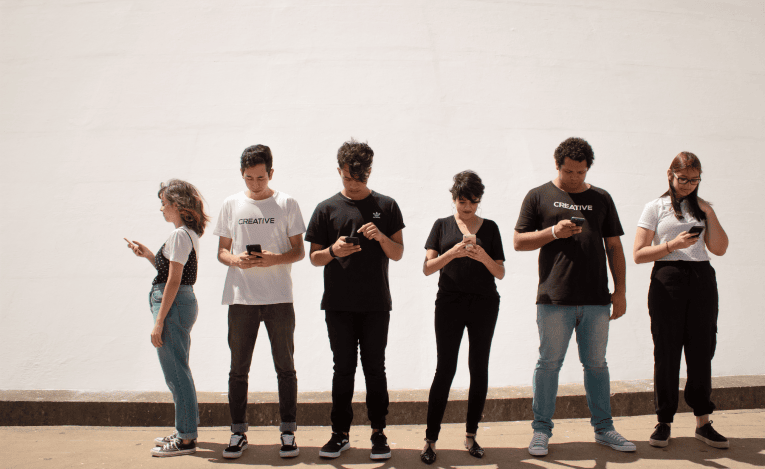
Social media has become a part of our daily lives. According to recent statistics, 68% of teenagers aged 12 to 17 have access to at least one form of social media (Statista 2023). These figures demonstrate the influence of social media on the younger generation. But it’s important to remember that giving teens uncontrolled access to social media can be harmful to their emotional health. We explain how.
The Effects of Social Media on Self-Esteem
First, it’s important to remember that the body goes through many changes during adolescence. Hormonal changes lead to oily skin, acne and weight gain. These changes do not correspond to the beauty standard conveyed on social platforms such as Instagram, “THE social media of beauty”.
Low self-esteem is therefore a serious effect of social media on teenagers. This can manifest in a number of ways:
- Young people can compare themselves to others and feel that they are not on par with other users.
- Adolescents may seek likes and comments, desperate to project a positive image and receive social validation.
- Social validation can sometimes mean that teenagers are not, or are no longer, capable of making decisions for themselves and need the advice of their small online community.
- With the freedom of expression on social media, some teens can be bullied. This means that they receive negative messages or public comments about them. This can shake their self-image and self-confidence.
The Effects of Social Media on Mental Health
Teens who are excessively active on social platforms indirectly subject themselves to anxiety that undermines their psychological health. The impact of social media on teens’ mental and emotional health can take different forms.
First of all, lack of sleep is a very common consequence of social media use. Adolescents sometimes spend hours scrolling instead of sleeping, in order to talk to their friends, for example. Some have FOMO, or Fear Of Missing Out, a kind of psychosis that keeps them on social media for fear of missing out on the latest buzz. What happens with this form of social media addiction? Young people experience stress and anxiety, mood swings, lose concentration in class and have difficulty remembering things.
Finally, social platforms can also generate fear in teenagers. This occurs when the teen is a victim of cyberbullying. In this case, the bullying was successful because the intimidating words have become ingrained in the victim’s brain.
Preventive Measures to Minimise the Negative Effects of Social Media
It’s now a fact that, with the rapid development of technology, we can’t stop teenagers from accessing social platforms. However, it is the duty of all parents and educators to protect young people from the negative effects of social media on their emotional health.
Here are 3 ways to minimise the risks of young people misusing social media.
- Open communication. It is essential to talk with teens and make them aware of the dangers of the Internet.
- Offer education on how to use social media responsibly. Teenagers need to be taught how to use social media properly. For example, telling them which content to show to others, how to express themselves in comments, what type of content to ignore/report, how to react to strangers who approach them on the Internet, etc.
- Reduce teenagers’ activity on media. Social media platforms offer parental control settings. This means that parents can literally control how long their children can access social media and which content they can access. These controls are designed to prevent teens from becoming addicted to Facebook, Instagram, Snapchat and other social media.
Conclusion
More and more young people have uncontrolled access to social media, and this is not without danger to their mental health. Addiction, cyberbullying, low self-esteem, peer pressure… This is how social media affects our children if they don’t know how to use it wisely. The stakes are high. Parents and professionals must therefore work together to protect this generation from the harmful effects of social platforms on their emotional health. École Galilée in Paris provides compassionate education and a personalised approach. The middle school support team provides guidance for teens in all the situations they may encounter.

